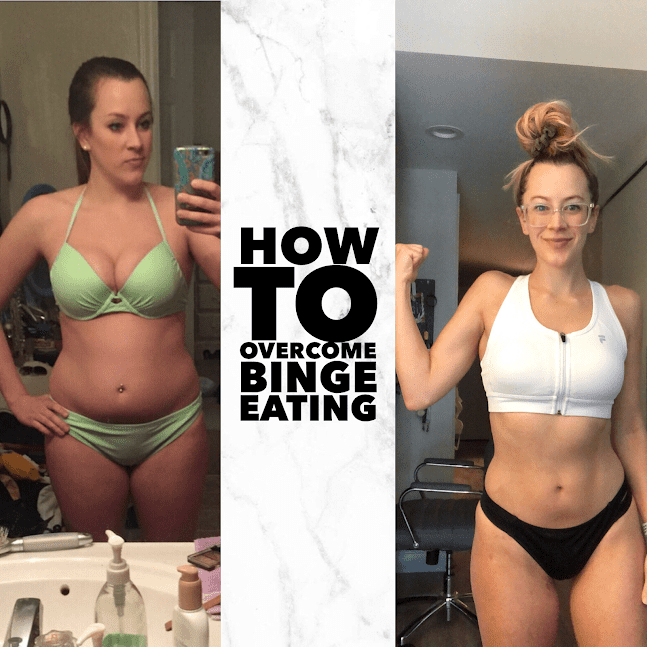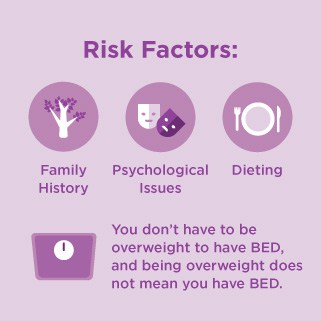This post may contain affiliate links. Please read my disclosure policy.

I haven’t talked much about my binging history in the past, except for maybe a couple of times. It’s not really something that you care to think back on every day. But I think it’s important to talk about, especially during recovery.
Binge Eating vs. Emotional Eating
Before we dive into it all, I want to first make it known for those who are unaware, that binging is not just “eating a lot.” It is far; a lot farther away from that.
Emotional eating is responding to your feelings in that moment by choosing food because it makes you feel better. Binging affects you in a much greater extent, because psychologically, you physically feel that you have no control. Yes, binging is usually triggered by stress, and also a way of coping with emotions, but the amount of psychological guilt and regret you put on yourself far exceeds the guilt of simply over-doing it with one meal. Not only that, but binging follows you to the next day; you find yourself still drawn to continuing using food as a reason to cope. And it’s not just enough telling yourself, “that doesn’t make any sense. Today’s a new day, you need to start fresh.” Because like I said, you lose control of your thoughts, to the point where you become irrational.
Lee (LeefromAmerica.com) explained the difference between the two best:
Emotional eating is when one uses foods to suppress an emotion – such as sadness, loneliness, anxiousness, or even happiness. Emotional eaters are not necessarily binge eaters.
Binge eating is defined by frequent and recurrent binge eating episodes with associated negative psychological problems. It usually involves a large amount of food in a short amount of time. It does not matter the person’s weight, size, gender, race or general happiness: binge eating can happen to anyone. Many emotional eaters can be binge eaters, too.
There’s a difference between the two, yet they both normally leave the person feeling worse off than before, and use food to cope with (usually uncomfortable) emotions or feelings.
The key thing i’m trying to get at, is that you lose all feeling of control. And because of that, you feel like you lose a piece of yourself.

My Story
My story with binge eating began while I was in high school. It started after a period where I was trying to diet, only eating 1100-1200 calories a day. I worked out. I made sure to drink a gallon of water of day. I was still very active and very selective with what I was eating. It didn’t take long for this to catch up with me, before I lost control and couldn’t resist my desire for food. It was a pattern that developed as I used binging as a coping mechanism for “bad” or stressful days.
In that *so thought* stressful moment, I would always think, “I can’t wait to get home and eat all the yummy foods to make myself better.” Even though I KNEW that doing this NEVER made me feel better; in fact it made me feel so much worse.
I would go through periods of binging and restricting, binging and restricting. This cycle occurred all throughout college, with multiple periods of remission; but it always seemed to come back again.

It wasn’t until I started fueling my body right, with wholesome foods, and appropriate macros, and finding other ways to channel my stress, that the binges became less, and less. I began to see the effect binging had on me, and how continuing this cycle wouldn’t get me anywhere. Eventually I stopped binging and found a way of living that really worked for me.
Fast forward to this year, when me and Simon made the move to DC, and I started my first “adult” job in a very stressful environment. It was hard for me trying to adapt to all the “new” and change that had occurred, especially without the support of the rest of my friends and family.
The thing is, binge eating disorder is just that; it’s a disorder that will never completely go away. It is wired in your brain, and despite your greatest intentions, it can make it’s appearance if triggered again.
But what I HAVE learned, and what HAS helped me over the years to keep binging in remission, is that I DO have the control. And my control revolves around my power in adapting healthier coping strategies, taking care of myself to prevent stress in the first place, and picking myself back up when I do something to let myself down.
I’ve found to amazing hobbies to channel my thoughts and energy into, weight lifting and baking, and they are also two of my favorite ways to cope.
When I fell back into the binging tunnel, after having been binge-free for 3 years, I was mad at myself. It took a couple months to put myself back together, but what I learned during that time, was that I DO have the mental strength to conquer this again.

Tips to stop Binging:
What help me recover from binging?
1. Stopping the binge/restrict cycle for good and starting to fuel my body. I start counting macros that were fitting for me, learning what my body needs, and found that fueling my body decreased food cravings and made me feel the need to binge less.
2. Learning my triggers. I really had to evaluate what was causing me to binge. Was I sad? Stressed? Was it a certain event or situation? Once I found the reasons my binges started, I could plan for how to tackle these triggers when they occured.
3. Developing coping strategies. Going off the later, I found better ways to cope when my triggers. I began stretching at night. I began channeling my energy in developing healthy recipes, instead of just eating to eat. I began to focus more on the relationship surrounding me and my relationship with myself.
4. I learned to forgive myself. In the past, I would beat myself, and carry my binging with me to the next today. Now I know, that’s whats done is done, that I am only human, and all I can do if I mess up is pick up the pieces and move on.
5. Mindfullness and positivity. I know it sounds cliche, but being more mindful of how I feel, knowing how binging will make feel, and knowing that there are healthier ways to channel my emotions makes it much less likely to fall down back to binging. And not only that, but bringing about more positivity and self care in my life to prevent stressful situations in the first place.
